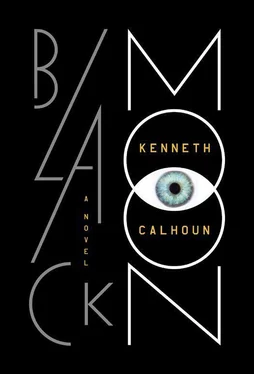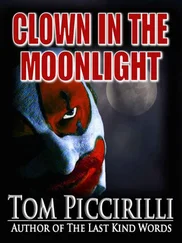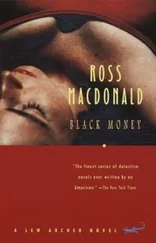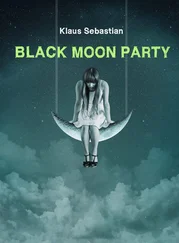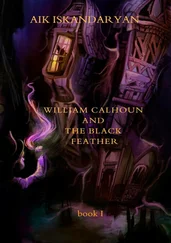She was slipping out from under the strap when the light changed. Something moved above her, blocking the sun. She turned and was jolted by what she saw. Out the window, looking down at her.
Eyes.
She released a short scream before clamping her hand over her mouth.
A set of massive cartoon eyes in the window. A kind of monster. A giant owl head on a human body.
“Jesus!”
Just a stupid costume, she could now see. One of those school mascots, or something escaped from an amusement park. Who is this creep?
The person inside was small. Dirty shirt and ripped jeans. Skinny, scabby arms pulling at the door.
It opened like a hatch and the owl person reached in, held out a hand. A small voice muffled inside the mask asked, “Can you get out?”
Felicia could tell that it was a girl in there.
She climbed out, avoiding the filthy hand, then reached back into the car for her backpack. It held a change of clothes, power bars, some ramen. It was all that she had brought, thinking she would be out in the field for no more than two days.
The owl stood back and stared as Felicia surveyed the damage. The car was almost on its side in the ditch that ran along the dirt road—a deep, flood-cut trench, toothy with boulders. She looked at the mountains—crisply visible, since the epidemic had done wonders for air quality—and concluded that she was probably ten miles from her parents’ house. Fifteen at the most.
She was surrounded by sage, all of it going brittle and brown as the California fall advanced. The shadows were long, bugs only starting to buzz. The sad call of meadowlarks fluted from the brush.
In the near distance, she saw a row of houses, a cul-de-sac reaching out into the scrubland. A massive loop of concrete overpass loomed above the neighborhood. Its distended shadow looked like an overlay of dark river.
This girl with the owl head scratched at her elbow and continued to stare—at least that was what the frozen-open eyes communicated.
“I like your hair,” she said.
Felicia’s hand went to her head. Short as a skinhead, she thought. It was just starting to grow back after it was shaved—when the implant was inserted. Porter had said he could just shave the site of the incision, but she insisted that he cut all of it so it would come back the same. The doctors both appreciated the gesture. A vote of confidence in their ability to get it right.
“I like your mask,” she told the girl. The anger at being startled was now faded, replaced by curiosity. The eyes were weirding her out, though. She leaned in, trying to see through the mesh, but it was dark in there.
“Did you crash?” the girl asked.
“Yep.”
“So did I,” she said. “Up there.” She pointed to the overpass in the distance.
“There’s like fifty cars up there, filled with dead people,” she told Felicia. “It’s super gross but that’s a good place to find dogs.”
Felicia looked at the overpass wondering about the dogs comment when she was struck with a realization. This kid was talking just fine, not staggering around. None of that sleepless shambling that they do.
The girl must have been thinking the same thing because she said, “You can sleep. I can totally tell. People around here will want to kill you.”
NOW they kicked through the furrows of dust, the owl-headed girl leading the way. The dead vines were like little rotting alien arms, curled and blackened as if by flames.
The vineyards had died long before the crisis, and developers had folded the groves up along the dotted lines and laid out neighborhoods of origami houses. It had been the fastest-growing community in the world during the eighties.
Felicia liked this skinny miracle girl who was now her guide.
Her name was Lila.
“Lila, hold up,” she said.
When she gave her a power bar, the girl tore at the wrapper, her hands shaking. She lifted her mask high enough to get her hand under it. The bar was gone in seconds.
Felicia gave her another one.
“I should save this,” the girl said.
“Go ahead and eat it,” Felicia told her, patting the backpack. “We have more.” She wanted the girl to stick with her. Maybe this will keep her close, she thought. “What’s in your pack?” she asked the girl. “Any food?”
“No, just noisy things.”
Felicia didn’t know what to make of this, but the girl had moved on down the trail that cut through dried mustard stalk.
“I need a car,” she called after her. “Know where I can get one?
“Probably,” Lila said with a shrug. “When we get to those houses.”
There was a wall of homes ahead of them. The first of what seemed like thousands of rows covering the valley floor and spreading up into the foothills. Just houses and supermarket strip malls, schools, and churches. She recalled a term that was sometimes used to describe such places. Bedroom community.
“Let’s see what’s in the garage,” Lila said, heading toward the closest house.
There was a naked man standing in the front yard, kicking a mound of trash on the lawn. Felicia held back. The girl sensed her fear, turned and beckoned.
“Don’t worry,” she said. “They’re not dangerous unless they catch you sleeping.”
She was right. The man glanced in their direction but turned away muttering to himself. Felicia could see that the front yard was filled with junk. Everything from inside the house had migrated to the dead lawn. Furniture, bunches of DVDs and video games scattered everywhere, plates and pans, hangers, tangles of clothes.
Felicia followed Lila around the side of the house and saw that every house was the same, the front yards cluttered with middle-class detritus.
“What a mess, right?” Lila said.
“Why?” Felicia asked, bending down to pick up a framed picture of a family. Smiling like they’re safe forever.
“Okay,” Lila said, “what happens is this. I’ve seen it so I know. Sleepless people get lost and they just walk into any house thinking it’s their house. Then they start looking for stuff that they remember having and they end up tearing the whole house up looking for it, throwing all the things they don’t recognize out the windows and doors. Then they look through that stuff again when they come outside and it gets even more messed up. They’re so clueless it’s unbelievable.”
“Wow, you’ve been paying attention,” Felicia said, thinking, Lee has to meet this kid. “How long have you been out here?”
“I don’t know. Feels like forever, but probably, what, a month?”
“You must be a pretty tough kid to live out here that long.”
The girl shrugged.
Felicia asked if she would take off the mask.
The kid seemed to freeze, looking back at her with those massive fake eyes.
“You can’t tell,” she said, “but I’m shaking my head.”
THERE was a car in the garage—an SUV. Felicia thought it would be perfect, if there was a key. They waded through the clutter of trashed belongings that surrounded the vehicle and Felicia got behind the wheel. She was hoping a solution would present itself.
“Hot-wire it,” Lila said.
“I don’t know how to do that, do you?”
“No. I know HTML though. And a little CSS.”
They checked under the seats and behind the sun visors. Felicia emptied the glove compartment as Lila looked on, snatching up a flashlight and stuffing it in her pack.
“Yay,” she said. “Light.”
“Good idea.”
“I used to sleep in the car,” Lila said. “When it first started happening to my parents. I’d lock myself in there and it was safe. For a while.”
“Where are your parents?”
“Out in the desert.”
Felicia waited for more, but the mask was silent and she was reluctant to prod. That could wait for the right moment.
Читать дальше
